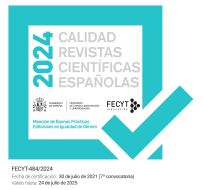The study of university teachers in contemporary history
DOI:
https://doi.org/10.5944/hme.1.2015.13199Keywords:
Professors, Historiography, University Teachers, Universities, Women university teachers, SpainAbstract
Today we are justified in affirming that the world of the nineteenth and twentieth century Spanish university, and in particular its teachers, has become a fully consolidated subject of historiographic research. In particular, the prosopographical approach has become a comparatively common practice among researchers focusing on the study of the history of university teachers. In this regard, the ambitious, in-depth initiative undertaken in the preparation of the Diccionario de catedráticos españoles de Derecho (1847-1943) (Dictionary of Spanish Law Professors) was a milestone in the field. We will also focus on the continuing interest regarding the levels of hierarchy observed among full professors, and we will approach this issue from a sociological perspective that takes into account the body of professors as a whole.
In truth, both the Dictionary of Spanish Law Professors and the study of hierarchies suffer from a «flaw» dating from their very conception, namely, that they only take into consideration the body of full professors. In doing so they exclude the «university women» (until 1953) as well as anyone who was not a full professor. Another «variable» that was not taken into consideration was the social background of the professors, alongside other aspects that could be considered to pertain to the «university condition». Thus our perspective goes beyond a purely «academic» history of the university, providing instead a «social» history of university professors. An undertaking as hefty as this can only be carried out in a collective, interdisciplinary fashion.
Downloads
Downloads
Published
How to Cite
Issue
Section
License
Authors who publish in Historia y Memoria de la Educación agree to the following terms:
- Authors retain copyright and grant the journal right of first publication with the work simultaneously licensed under a Creative Commons Attribution-NonCommercial 4.0 International that allows others to share the work with an acknowledgement of the work's authorship and initial publication in this journal.
- Authors are able to enter into separate, additional contractual arrangements for the non-exclusive distribution of the journal's published version of the work (e.g., post it to an institutional repository or publish it in a book), with an acknowledgement of its initial publication in this journal.
- Authors are permitted and encouraged to post their work online (e.g., in institutional repositories or on their website) prior to and during the submission process, as it can lead to productive exchanges, as well as earlier and greater citation of published work (See The Effect of Open Access).










